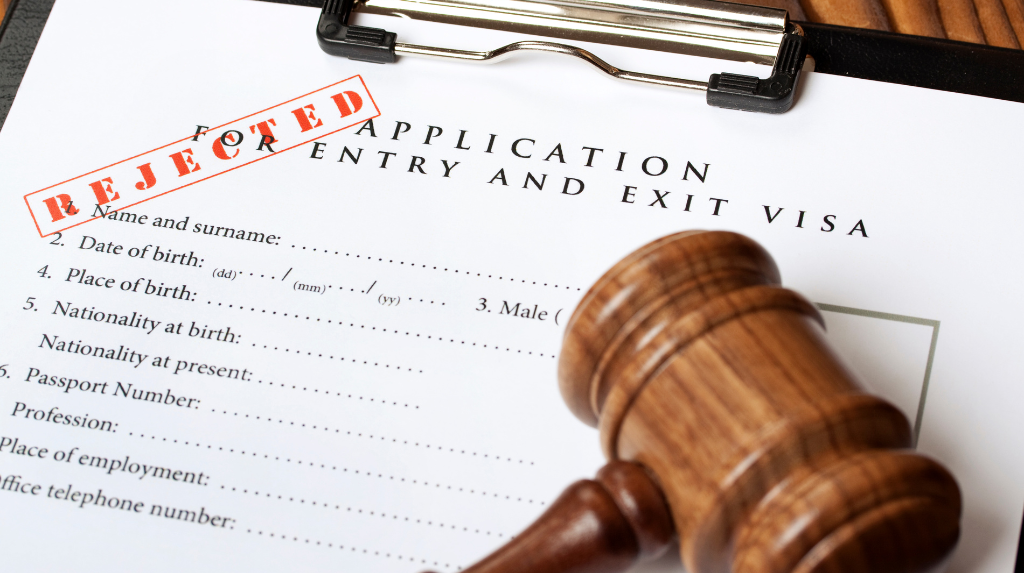Israel, a vibrant and culturally diverse country, welcomes millions of tourists, business travelers, and individuals from around the world each year. However, there are instances where individuals may face refusal of entry into Israel. This article aims to shed light on the topic of refusal of entry into Israel, providing insights into the reasons, procedures, and potential implications.
Refusal of Entry into Israel
This decision is made by the Israeli authorities, primarily the Ministry of Interior and the Israel Défense Forces. The reasons for refusal can vary, ranging from security concerns to visa-related issues or prior immigration violations.
Reasons for Refusal
When it comes to refusal of entry into Israel, there are several reasons that may lead to this outcome. Some common reasons for refusal include:
- Security Concerns: The Israeli government prioritizes national security, and if there are valid concerns regarding an individual’s background or intentions, they may be denied entry.
- Visa Issues: If an individual does not possess the appropriate visa or fails to meet the visa requirements, they may be refused entry. It is important to obtain the correct visa type based on the purpose and duration of your visit.
- Criminal Record: Individuals with a criminal record, especially those involved in offenses related to security or moral turpitude, may face entry denial.
- Health-related Concerns: In situations where individuals pose a health risk, such as carrying contagious diseases, entry into Israel may be refused.
- Prior Immigration Violations: If an individual has violated immigration laws or overstayed their previous visits to Israel, it can lead to refusal of entry.
Entry Denial Procedures
Here is an overview of the entry denial procedures:
- Initial Assessment: Upon arrival, individuals are directed to the border control area, where an initial assessment takes place. The border control officer examines the travel documents, asks questions regarding the purpose of the visit, and may inquire about other relevant details.
- Secondary Screening: If the border control officer has concerns or doubts during the initial assessment, the individual may be subject to secondary screening. This involves further questioning and examination of documents.
- Decision-making: Based on the information gathered during the initial assessment and secondary screening, the border control officer makes a decision regarding entry. If entry is denied, the individual is provided with an explanation for the decision.
- Appeal Process: In certain cases, individuals have the right to appeal the entry denial decision. This involves submitting a written appeal to the relevant authorities within a specified timeframe. The appeal will be reviewed, and a final decision will be made.
It is essential to cooperate with the border control officers during the assessment and screening process. Answering questions truthfully and providing necessary documentation can help facilitate a smoother entry process.
Frequently Asked Questions about Refusal of Entry into Israel
Can I reapply for entry into Israel after being refused once?
Yes, it is possible to reapply for entry into Israel after being refused. However, it is crucial to address and rectify the reasons for the initial refusal.
Will being refused entry into Israel affect my future travel plans?
Refusal of entry into Israel may have implications for your future travel plans. Some countries and immigration authorities consider past entry denials when processing visa applications or making entry decisions.
Can I enter Israel through a different port of entry if I have been refused entry at one?
If you have been refused entry at a specific port of entry, it does not necessarily mean that you will be denied entry at all other ports of entry.
How long does the appeal process take?
It is advisable to submit the appeal as soon as possible to initiate the process. The authorities will review the appeal and provide a decision within a reasonable timeframe. It is essential to be patient and follow any guidelines or instructions provided during the appeal process.
Are there any restrictions on reapplying immediately after being refused entry?
There are generally no specific restrictions on reapplying immediately after being refused entry into Israel. Reapplying without addressing the concerns that led to the initial refusal may result in a similar outcome.
Can I seek legal assistance in case of entry denial?
Yes, it is possible to seek legal assistance in case of entry denial. They can guide you through the appeal process and provide valuable advice based on their expertise in immigration law.
In Conclusion, Refusal of entry into Israel can be a challenging and disheartening experience for individuals hoping to visit or enter the country. It is important to ensure that all necessary documentation and requirements are in order before traveling to Israel.
Do you need support with your Israel visa application ?
Contact our team of skilled immigration lawyers to discuss your visa and immigration needs.
Call us on +234 812 5505 986 or WhatsApp us at +234 818 1547 085 for immediate assistance with your situation. We are available to assist you in person, over the phone, or online.





